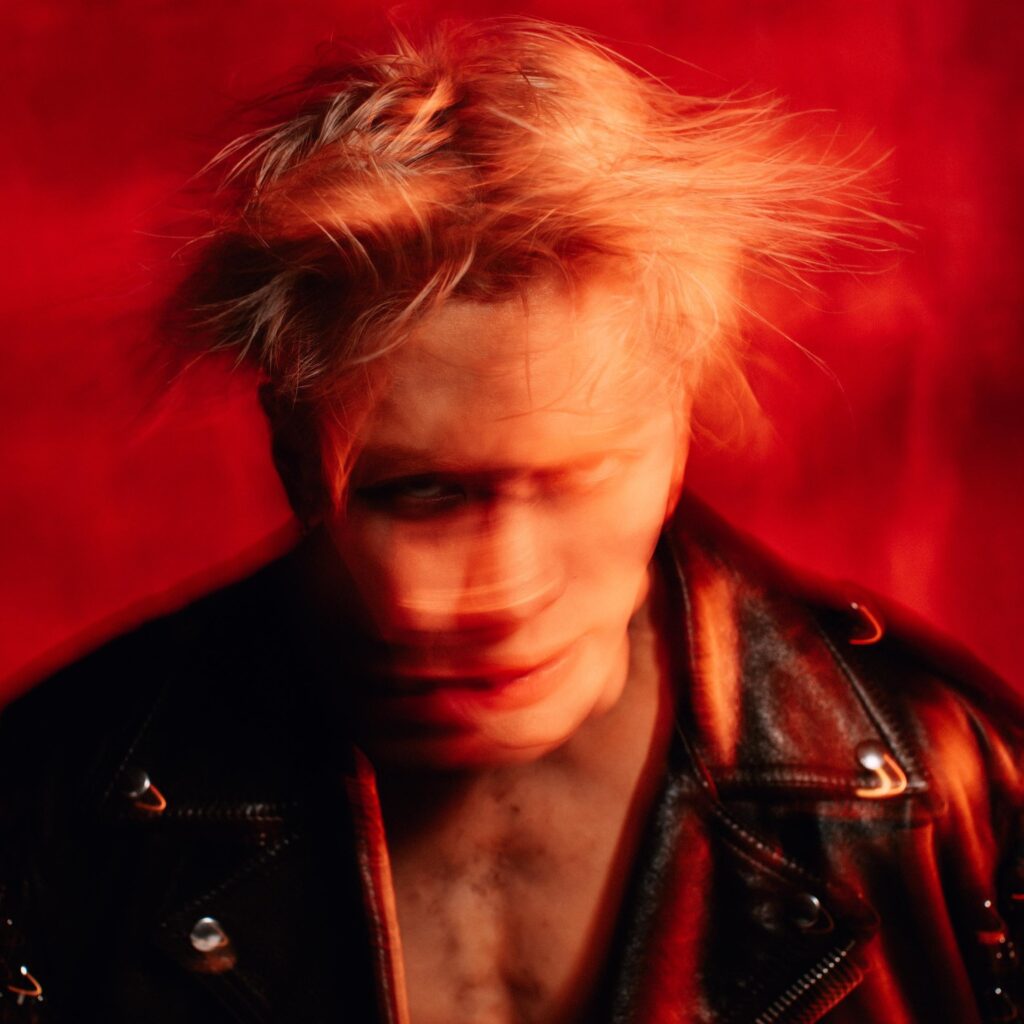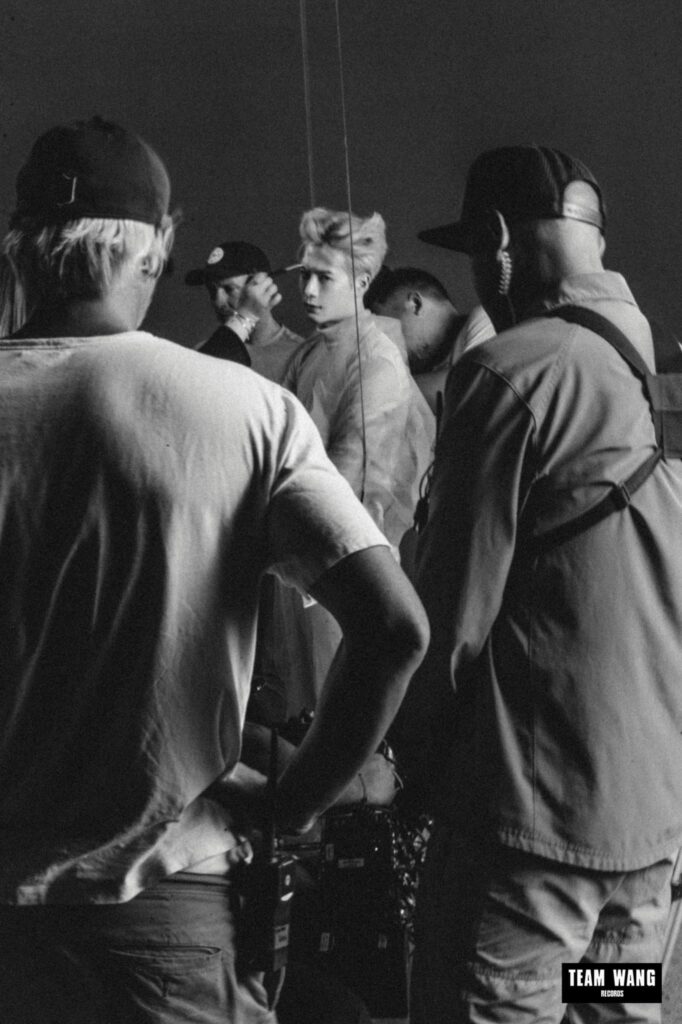
The transformation that Jackson Wang has undergone since debuting in 2014 as the lovable funny guy and self-professed rap amateur from Got7 is, frankly, incredible. Having first explored solo work in 2017 under his independent label Team Wang with the comically try-hard “Papillon” — music which he himself now also admits was “wack” — his artistic efforts since then have seen him deservedly win the title of first Chinese solo artist ever to break the US radio top 40.
As well as being an impressive and historic achievement relevant to anyone of Asian descent, that growth is also largely organic: the quality of his singing, dancing, songwriting, production, overall artistic vision, and personal maturity have shot up year on year since his immature beginnings. 2019’s “Bullet to the Heart”, 2020’s “100 Ways”. This year’s “Blow” and “Cruel” have all been excellent singles complete with jaw-dropping music videos, and their attention to detail and commitment to quality put to shame many Asian solo artists working today.
Released last week, Magic Man is Jackson’s second full-length album following 2019’s Mirrors (excluding a quietly dropped throwaway album called Lost & Found, released without promotion earlier this year). Featuring “Blow” and “Cruel”, it clocks in at just 27 minutes over ten songs, but in that time he makes the most impressive artistic statement of his entire career so far, showing himself unapologetically at his most raw and authentic. With aching, ravaged vocals and gritty production, the album also introduces a new, semi-theatrical rock influence that perfectly suits his new character and flavours this new era of his work with a much more original flair.
His voice is almost unrecognisable compared to the huskiness of his youth, a quality which often led to his recordings with Got7 sounding weak and lacking resonance. Since then, he’s figured out not just how to sing, but how to vocally emote and how to use the unique qualities of his voice to his advantage — Magic Man features hands down the best vocal performances of his career.
The controlled dynamics between aggressive power and breathy huskiness throughout all of these songs are what keep the listener engaged to the end; for example, the painfully raw shouting in “Cruel” and the choral harmonies on “Just Like Magic” are what give these songs their titular qualities. Meanwhile, the falsettos on this album go beyond being impressive for Jackson, to just being plain impressive; moments on “Champagne Cool”, “Come Alive”, “Dopamine”, and “Blow” all compete to be the most beautiful and memorable on this project.
The production on this album, impressively committed to creating an authentic rock sound, is also the perfect partner to his performance. Heavily distorted guitars twang out countermelodies to Jackson’s chorus hooks, while soft, palm-muted notes complement his breathier lines. Contributed by lead producers Cameron and Louis Bartolini, this instrumental foundation gives his rockstar persona credibility, and make the sections of this album produced by them the most interesting and refreshing.
“Blow”, “Cruel”, and “Champagne Cool” blow the doors open with thunderous drums and stormy guitars. “Blow”, in particular, is one of the best title tracks released by any mainstream Asian artist this year; an elastic tempo pulls the listener back and forth as he sings over a sultry, dramatic punk-rock instrumental worthy of Panic! At The Disco:
You taste likе cigarettes
I got a problem, think I’m into it
I breathe her in and hold it in my chest
I take a hit and let it burn my lips
“Go Ghost” then makes a call-back to Jackson’s established electronic pop sound, with a sudden genre change that nevertheless maintains the same drama and energy. In any case, the same rock guitars make a reappearance partway through this song, helping to sew this new section of the album smoothly in. “Drive It Like You Stole It” follows by tributing the moody disco-pop of Daft Punk, The Weeknd, and Calvin Harris; it’s decidedly derivative, but still catchy in its own right.
Magic Man then quickly returns to the central rock sound with the sensual “Come Alive” and theatrical “Just Like Magic”, whose drums jump from a slow lope into fast, agitated indie rock, before dropping out completely on the choral refrains. Alongside “Blow”, the dramatic twists and turns of the latter suggest the substantial influence of musical theatre on the concept and sound of this album.
From here, the album relaxes into melancholy. “All The Way” is the last and weakest rock song on the project, edging into angsty emo rock and losing the sharp allure of the previous tracks. Meanwhile, “Dopamine” sees Jackson return to the moody hip-hop style that he has previously explored on songs like “Drive You Home”. It’s one of the more radio-friendly tracks on the project, but rehashes the characteristic Post Malone sound that has already had the unfortunate effect of making much of Jackson’s earlier songs sound like knock-off versions (even when these tracks were actually quite good).
With strumming acoustic guitars and balladeer vocals, album closer “Blue” suffers the same Post-Malone effect to an extent, but it also benefits from having a more raw, emotional vulnerability and the gravitas of being the final track:
When the water runs dry
I know that I can always come find you
You’re the only one who picks me up
Whеn I’m so blue
And you feel it, too
Its placement also marks the end of a smartly paced album; Magic Man takes us smoothly from anger, to allure, to desolation with a compelling and immersive narrative. With this album, Jackson once again elevates his position as the most notable solo artist with a K-pop background — and indeed out of Asia — trying to make inroads into the notoriously xenophobic Western music industry.
Not that there’s much competition. K-pop groups making similar achievements on US charts have the novelty of the K-pop format on their side, so Jackson is one of few Asian-ethnicity artists determined to play the Western industry at its own game.
For him, that means committing absolutely to the holistic quality and overarching vision of his music, persona, and career as a popular artist and businessman working between America and Asia. He says that his goal is to become a bridge between the East and the West, i.e. to promote global harmony, and it seems like this vision is what has been driving him forward with the shocking speed and force it has for the past five years. If nothing else, this willingness to dream, as well as the sheer hard work it’s taken to realise such a lofty dream thus far, should be commended.

After all, how many idols, especially of the amateur rapper archetype, eventually depart the arts industry without ever actually creating any impactful art of their own or leaving any real legacy of note?
Whether because they don’t see it or don’t want it, making meaningful art for the masses is one of the best and few opportunities idols will have in their lifetimes to inspire any change in the world for the better, and yet surprisingly few choose to take it.
Jackson is one of a handful. His attention to detail and commitment to improving himself, especially this year, demonstrate that he sees this limited window of opportunity very clearly, and is twisting and folding himself to make sure he can get through it in time. He does this because he has the vision to see what is on the other side, and believes that realising that vision will be worth all the hard work and sacrifice it might take. Magic Man is a glimpse of that vision.
(YouTube. Forbes, Vulture. Lyrics via Genius. Images via Team Wang.)


